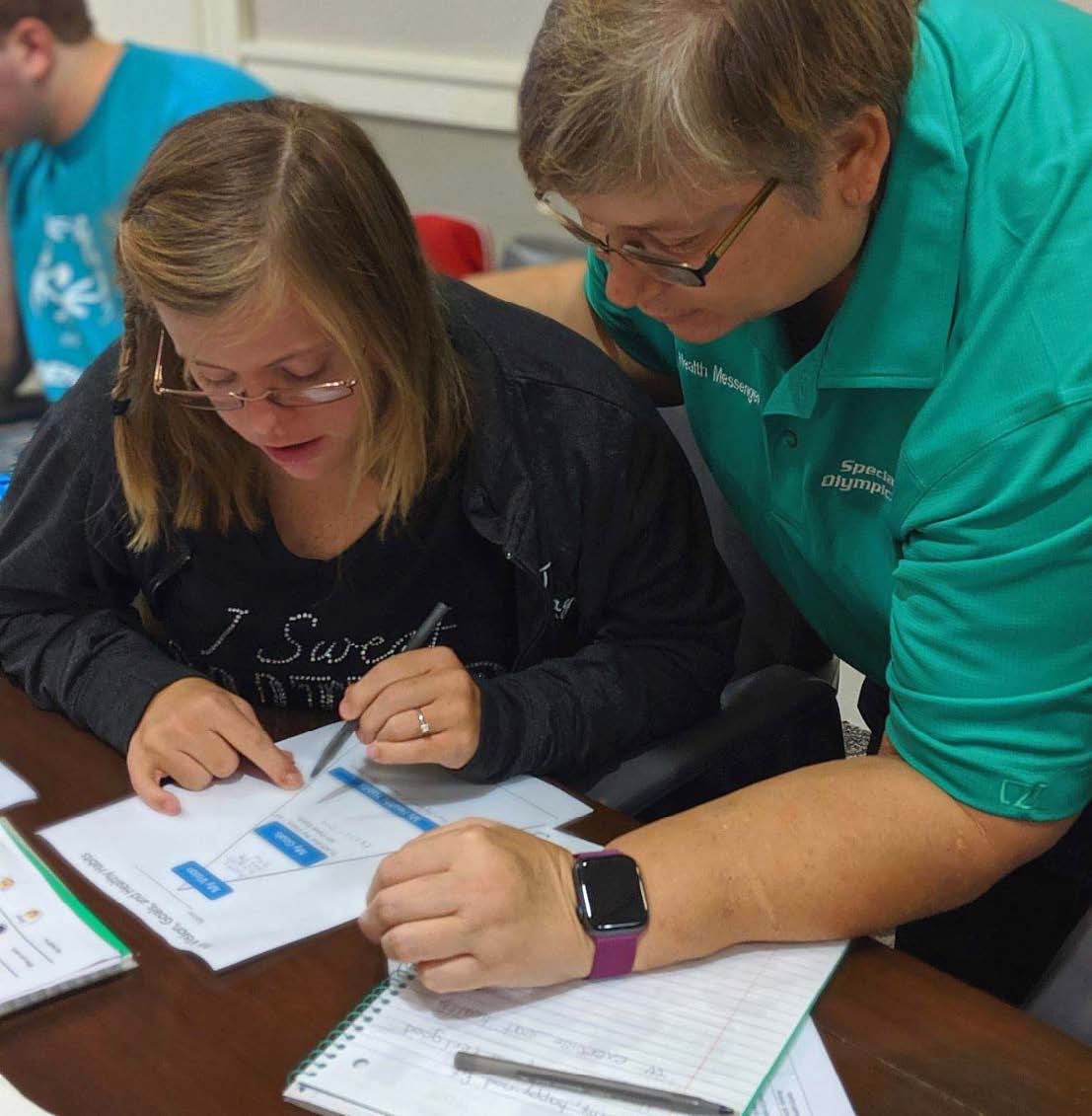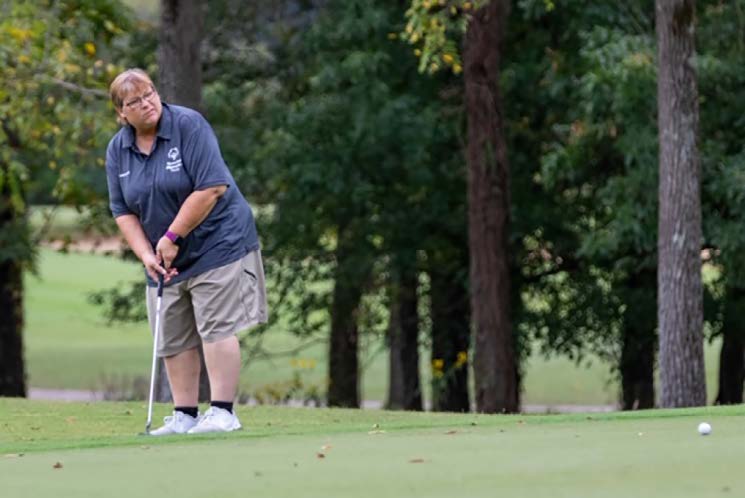
PHOTO PROVIDED BY STEPHANIE CORKETT / SPECIAL OLYMPICS
BY RENEE DEASE
You will not meet someone more equipped to talk about Special Olympics and the importance of health for seniors than Maryann Gonzales.
Gonzales, a 46-year veteran of Special Olympics and member of the Florida Sports Hall of Fame and Special Olympics Florida Hall of Fame, is no stranger to success. She was introduced to Special Olympics at age nine and has not looked back. Since then, Gonzales has gone on to work for Special Olympics Florida, officiate at multiple Special Olympics World Games, and advance a number of programming areas. In 2017, she undertook another important role – Special Olympics Health Messenger.
During her training, she decided she wanted to focus on the athletes who are older. Gonzales has started recruiting athletes within her program of Florida and is working on retaining older athletes already participating. The global numbers are striking as two of every three athletes right now are under 22 years old, but there is no age limit to Special Olympics participation.
STAYING ENGAGED: A CONVERSATION WITH MARYANN GONZALEZ
Maryann Gonzalez has been a Special Olympics athlete for more than 45 years. She has played 10 sports and officiated softball and volleyball in five Special Olympics World Games and four Special Olympics USA Games. Gonzalez was part of the first group of athletes to serve on the U.S. Leadership Council and first to sit on the North American Leader Council. She was inducted into Special Olympics Florida's Hall of Fame in 1999. Gonzales also graduated from college with an associate degree in computer technology. Learn a little more from Gonzales and her important work in an interview she recently had with Athlete Health Corner editor Renee Dease.
- RD: What have you always liked best about Special Olympics?
- MG: I like the joy that it brings to the athletes. And they can compete at whatever ability level they have. They can show you that on their best day they can achieve anything that is put in front of them.
- RD: What do you do on a daily basis to stay fit?
- MG: I exercise three to four times a week and I'm competing in two to three sports right now. I like going to the gym and I speed walk around the office with my co-workers to see who can get around the office the fastest. Also, I am getting older and I make sure I keep healthy. I got on the scale and didn't like what I saw. I lost 21 pounds by exercising more and eating healthier like taking in more proteins and less carbs. This makes me feel better and I can see the difference in my clothes' sizes. I have more energy and more motivation to keep going, and my final goal is 40 pounds by December. It's a realistic goal now; it's something I can accomplish. I weigh in once a week at the same time and on the same scale.
- RD: What are your goals and plans in being a member of the Aging Athletes Task Force?
- MG: In office meetings, I like to keep the task group informed about what Florida is doing. We are trying to engage more athletes that are older and keep them involved in either fitness or creating new sports programs that they are capable of doing. We moved track and field from May to November for cooler temperatures, and bocce from outside to inside to accommodate the aging population. For track and field, it is too early to tell, but bocce has had a big change. The numbers in the county went up alone as well as the state.
- RD: Why is it important for Aging Athletes to continue to include fitness into their lifestyle?
- MG: It will help them be healthier and keep them in Special Olympics.
- RD: How did you feel when you found out you were selected as a Special Olympics Health Messenger? MG: I felt honored that people thought I could teach other athletes how to stay healthy. Having the class and interacting with everyone in Washington, D.C. gave me so many ideas about what to do when I went home.
- RD: How would you approach Aging Athletes about re-entering Special Olympics?
- MG: I would discuss all the new programs that they offer. I know a lot of ath letes who don't compete. The Florida fitness program is starting. It will show that they can stay engaged in other ways besides sports, come to a fitness class instead. Some athletes might lose confidence in their abilities. It's up to us to encourage them that you can do whatever you want to do, even if you need to change to a different sport. You should give it a shot and, if you like it, that will keep you involved. Volunteering is also important. Older athletes would lose some friends because they don't get to see them anymore… Special Olympics gives you your physical ability and motivates you to continue to walk around and see your friends. •

PLAYING THROUGH: (Opposite page) Maryann works with an athlete during a Health Messenger program."I love sharing the message of how important good health and nutrition are to improving health for people with intellectual disabilities, including the senior population;" (Above) Maryann putts her ball onto the green. She has played 10 sports and officiated softball and volleyball in five Special Olympics World Games and four Special Olympics USA Games.
ABOUT THE AUTHOR:
Renee Dease is Athlete Health Corner editor for Special Olympics.